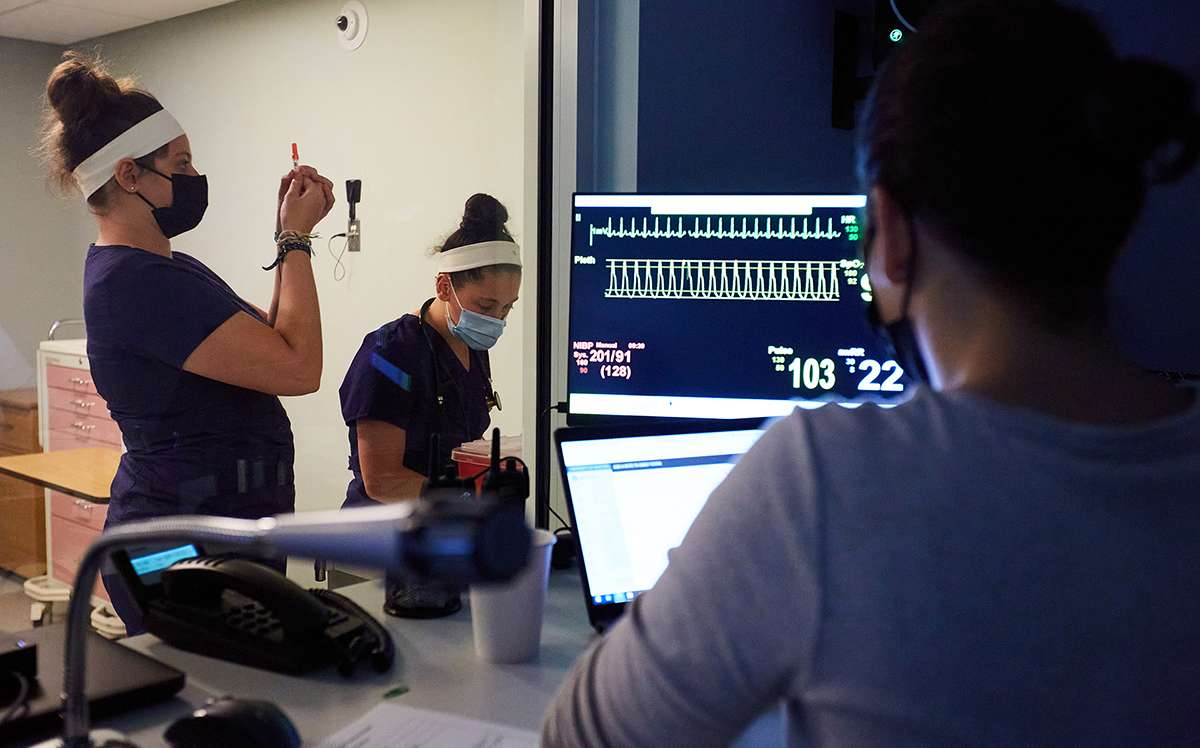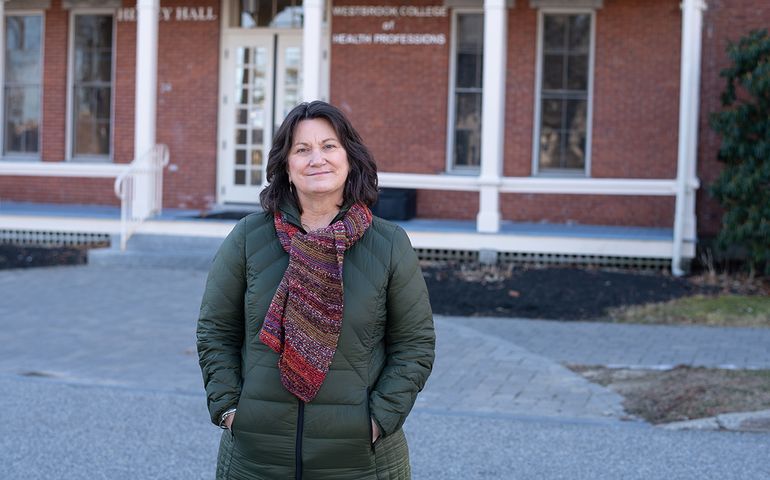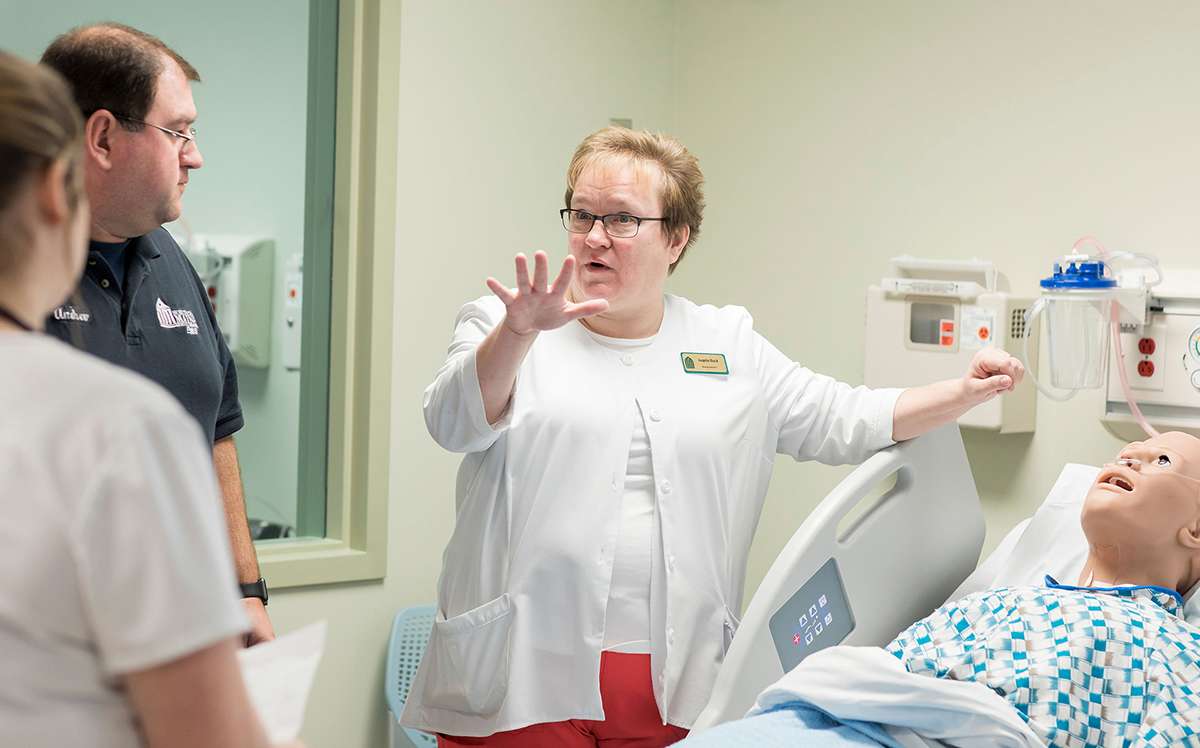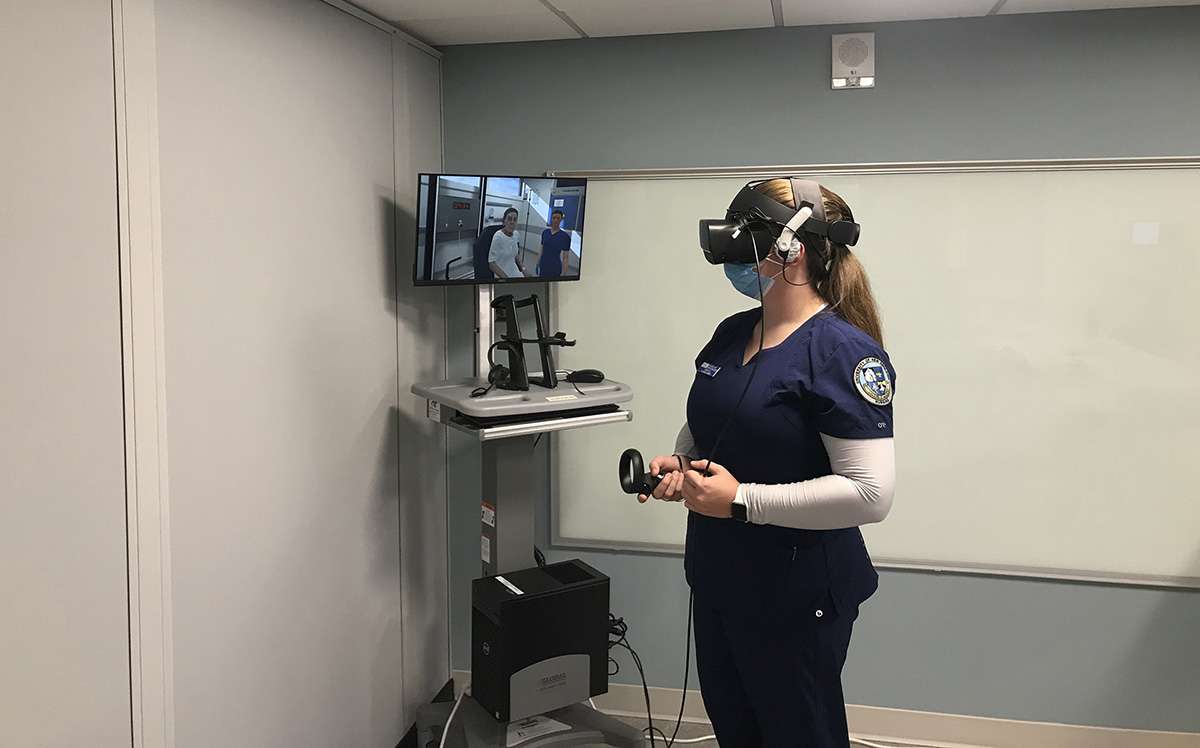
Up for the challenge: Maine’s nursing programs rise to meet steep demands
 Photo / Courtesy of UNE
Jennifer Morton, director of UNE’s nursing program
Photo / Courtesy of UNE
Jennifer Morton, director of UNE’s nursing program
The demand for nurses in Maine and across the country has never been greater, and enrollment in Maine’s nursing programs is higher than ever, with growing waitlists, in line with national trends, which saw a 5.6% enrollment increase in 2020.
While demand for nurses still outpaces the rate new nurses are entering the workforce, especially in Maine, with an aging population, the state’s 13 nursing programs are rising to the challenge by increasing program capacity, adding new faculty, and getting creative with what they’ve got and the partnerships they’ve made.
New expansions
The Maine Community College System just added a new nursing program at York County Community College in Wells, making a total of six programs in their seven campus system, along with availability at some of their satellite locations in more remote parts of the state, which not only make it convenient for students who need to remain in their current location to care for family or other demands, but beneficial to the hospitals and medical facilities near them, since many of those students stay in their current community to work upon graduation.
“I like the fact that I don’t have to drive as far to attend class,” nursing student Gina Thomas says of the Dover-Foxcroft satellite location in recent testimony to the state for increased funding. “My study time is not interrupted by travel. Also, as a single mom, I am still able to provide for my daughter while attending classes.”
The state is looking at providing $2.5 million in funds to MCCS to continuing ramping up its nursing programming. The funding, which would be matched by another $2.5 million by partner hospitals, would allow Maine’s community college system to hire 33 full-time and 20 part-time nursing faculty, plus seven support staff, new lab equipment, simulation mannequins, computers, monitors, hospital beds and other supplies, which would allow the system’s students to grow from 209 to 417, some of whom could begin as early as this summer.
“This has been a long-standing issue in Maine, but the pandemic has stressed our healthcare systems to the brink,” MCCS president David Daigler said in his testimony in favor of the funding bill. “Our nurses have been at the front line of this pandemic. They are exhausted and in desperate need of replenishment.”

Going further
The University of New England’s School of Nursing graduates 110 students a year, offering both a traditional bachelor of science in nursing and an accelerated BSN over 16 months for students who have already earned a bachelor of arts degree or bachelor of science in another major, which is the fastest growing model in nursing education, says Jennifer Morton, director of UNE’s nursing program.
While their enrollment has remained steady over the past several years, with waitlists, they recently formed a partnership with Maine Health to create a program for its employees, where classes and clinicals are delivered onsite to a cohort of 15 mostly CNAs.
Another new way UNE’s program is able to help the healthcare workforce is by certifying freshman nursing students as CNAs, which usually doesn’t happen until their junior year, made possible by another partnership with Maine Health, which not only provides students with great hands-on experience in the field but helps the state’s dire need for more CNAs, Morton says.
UNE is also exploring graduate program options. Currently the University of Maine, and the University of Southern Maine offer in-person master’s degrees in nursing, and Husson University and Saint Joseph’s College of Maine offer their master’s programs online. More slots in advanced degree programs ultimately mean more nurses qualified to teach, which further helps fill demand.

Diversity and resilience
The University of Maine’s School of Nursing, which welcomed its largest first-year class of 115 students last fall, has received recent funding focusing on increasing diversity and addressing burn out.
The university received a $1.7 million grant last summer to increase the diversity of Maine’s nursing workforce, in partnership with Northern Light Health and Maryland’s Morgan State University, and the U.S. Department of Health and Human Services. In addition to helping address the nursing shortage, the four-year award will help increase opportunities for those who are financially disadvantaged or from ethnic and racial minorities who face tough competition in a pool of up to 1,400 applicants for approximately 80 available seats. The funds will go towards strategic recruiting of minorities and first-generation college students and supporting their academic and professional success.
UMaine is also focusing new funding it received in February from the US DHHS on reducing job-related burn out, a common problem among nursing students and professionals. The $1.5 million three-year award created WellNurse, a research and interprofessional program in collaboration with the UMaine School of Food and Agriculture, Clinical Psychology Program and New Balance Student Recreation Center. The program will teach resilience-building skills to nursing students using approaches like mindfulness-based stress reduction, physical fitness, nutrition training and peer mentoring. Seen as a future model in Maine and beyond, it will be the basis for a UMaine wellness, resilience and stress management curriculum in the School of Nursing.
Ready to work
Students come to the field for a variety of reasons, all with a strong desire for meaningful work. Eastern Maine Community College nursing student Andrew Knight decided on nursing, a career path he’d never considered until college, because he knew he wanted to work with people and the program sounded challenging. The 100% job placement rate was another selling point.
“The [EMMC] Nursing Program has changed my life,” Andrew Knight said in recent testimony in favor of increased funding. “Two years ago, I was a 22-year-old kid bouncing from job to job uncertain of my future. Bartender, landscaper, pizza delivery guy. I was surviving — but I wasn’t thriving.” He’s now two months from becoming a registered nurse and already has a job offer in the emergency department he works in.
These recent supports, expansions, and innovative thinking in Maine’s nursing programs go a long way to close the gap in nursing demands and help create thriving students and programs, where graduates have a pass rate on national licensing exams averaging over two percent higher than the national average of 82.5%.











0 Comments